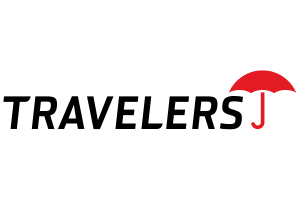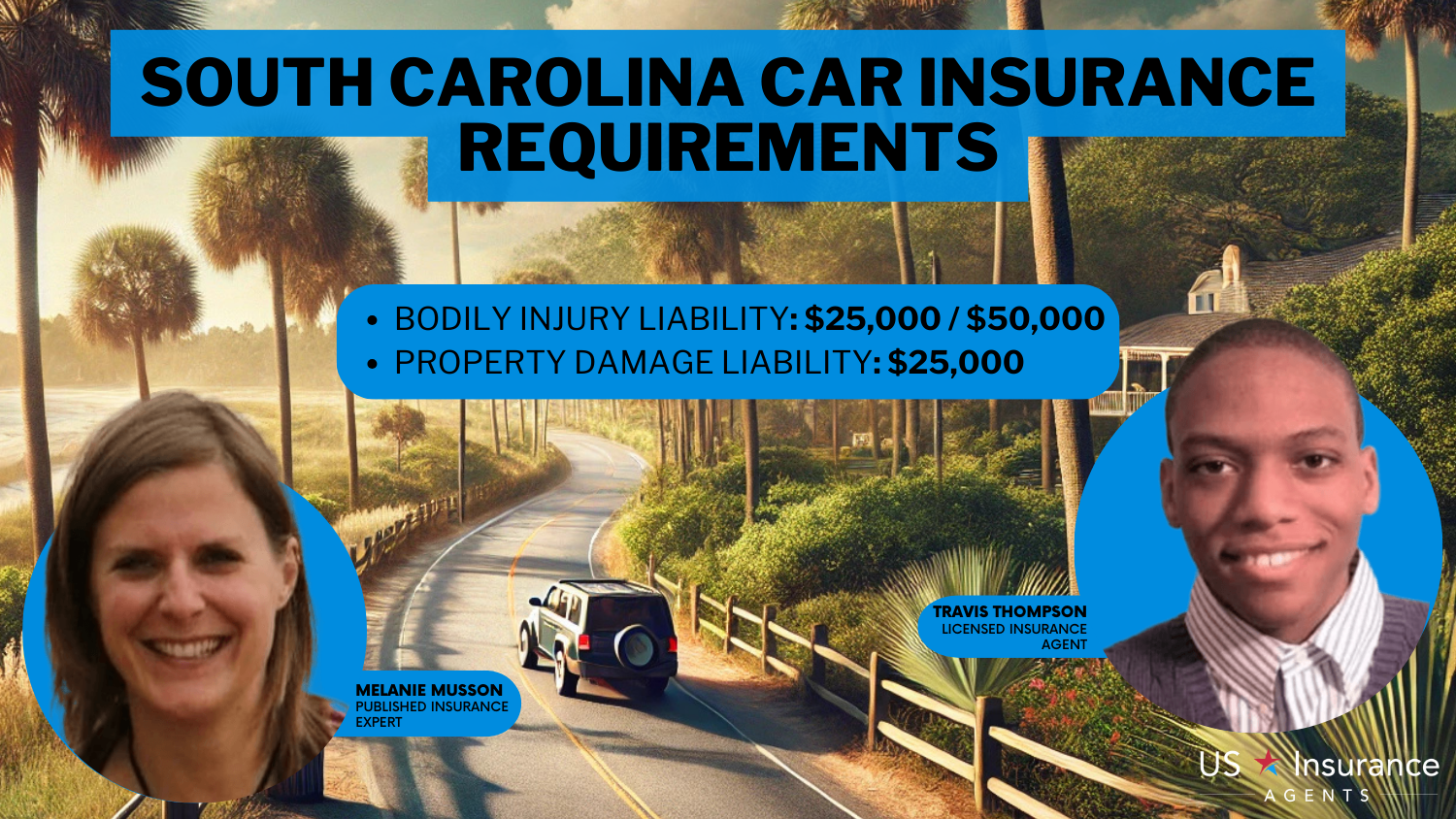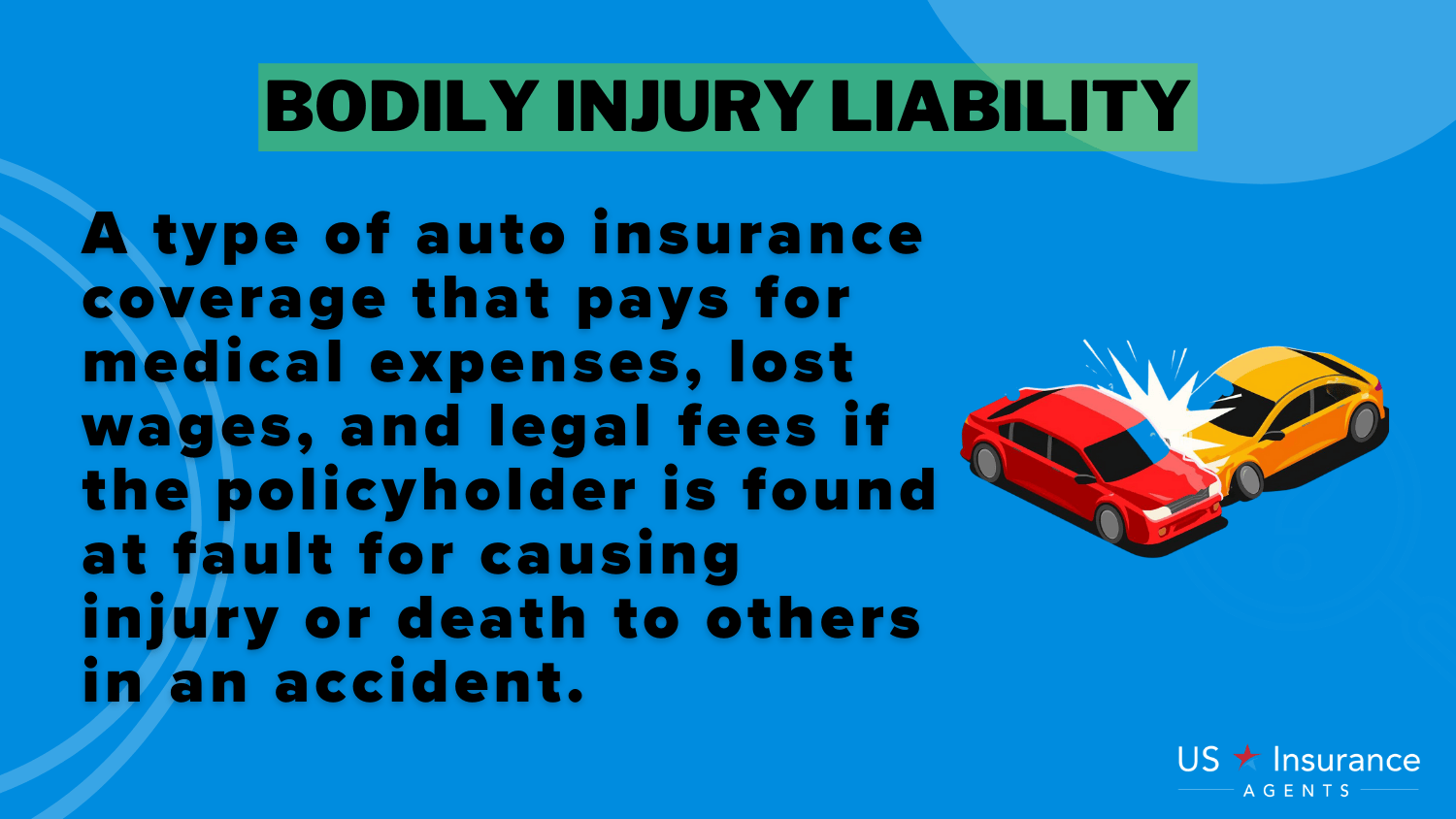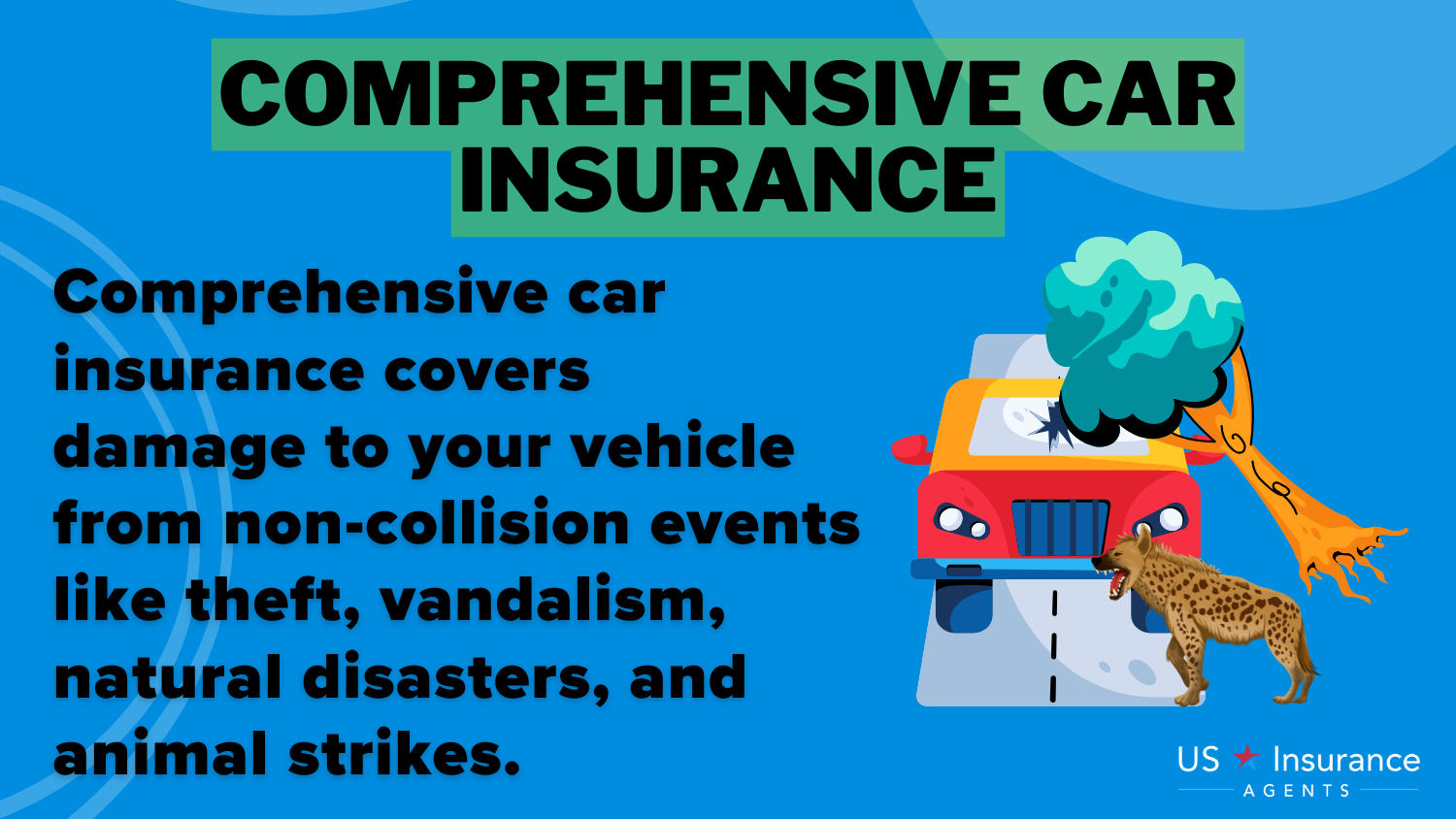South Carolina Car Insurance Requirements in 2026 (Minimum Coverage for SC Drivers)
South Carolina car insurance requirements include 25/50/25 of property damage and bodily injury coverage, with rates starting at $28/mo. Failure to meet SC state minimum standards can result in suspension of your license and vehicle registration. This guide will assist you in meeting these requirements and how to avoid penalties.
Read more Secured with SHA-256 Encryption





Table of Contents
Table of Contents


Published Insurance Expert
Melanie Musson is the fourth generation in her family to work in the insurance industry. She grew up with insurance talk as part of her everyday conversation and has studied to gain an in-depth knowledge of state-specific insurance laws and dynamics as well as a broad understanding of how insurance fits into every person’s life, from budgets to coverage levels. Through her years working in th...
Melanie Musson


Sr. Director of Content
Sara Routhier, Senior Director of Content, has professional experience as an educator, SEO specialist, and content marketer. She has over 10 years of experience in the insurance industry. As a researcher, data nerd, writer, and editor, she strives to curate educational, enlightening articles that provide you with the must-know facts and best-kept secrets within the overwhelming world of insurance....
Sara Routhier


Licensed Insurance Agent
Travis Thompson has been a licensed insurance agent for nearly five years. After obtaining his life and health insurance licenses, he began working for Symmetry Financial Group as a State Licensed Field Underwriter. In this position, he learned the coverage options and limits surrounding mortgage protection. He advised clients on the coverage needed to protect them in the event of a death, critica...
Travis Thompson
Updated April 2025
South Carolina car insurance requirements require drivers to have 25/50/25 liability coverage. Monthly car insurance rates in SC start at $28.
If you fail to show proof or evidence of insurance, your vehicle registration and license can be suspended as part of your penalties.
South Carolina Auto Insurance Minimum Coverage Requirements
| Coverage | Limits |
|---|---|
| Bodily Injury Liability | $25,000 per person / $50,000 per accident |
| Property Damage Liability | $25,000 per accident |
Find the best insurance companies and ideal coverage options that perfectly fit your financial and vehicle requirements. Enter your ZIP code to start comparing rates in South Carolina.
- 25/50/25 is the required auto insurance coverage in South Carolina
- See other coverage options in South Carolina to help you save
- Read our guide to avoid license and registration suspension in SC
Explore further information about South Carolina car insurance requirements, other coverage options available, and ways to avoid fines.
South Carolina Auto Insurance Requirements & What They Cover
In South Carolina, all personal vehicles are required to carry a minimum liability coverage, including bodily injury liability of $25,000 per person, $50,000 per accident, and property damage liability of $25,000.
Additionally, the state mandates uninsured and underinsured motorist coverage with the same minimum limits: $25,000/$50,000 for bodily injury and $25,000 for any damaged property.
This ensures that drivers are protected even if they are involved in a road accident with someone who has inadequate insurance.
Free Auto Insurance Comparison
Compare Quotes From Top Companies and Save
Secured with SHA-256 Encryption
Cheapest Car Insurance in South Carolina
USAA offers the cheapest car insurance in South Carolina, followed by State Farm and Travelers.
 6,590 reviews
6,590 reviewsCompany Facts
Min. Coverage in SC
A.M. Best
Complaint Level
Pros & Cons
 6,590 reviews
6,590 reviews 18,157 reviews
18,157 reviewsCompany Facts
Min. Coverage in SC
A.M. Best
Complaint Level
Pros & Cons
 18,157 reviews
18,157 reviews 1,734 reviews
1,734 reviewsCompany Facts
Min. Coverage in SC
A.M. Best Rating
Complaint Level
Pros & Cons
 1,734 reviews
1,734 reviewsRates vary by city, with Aiken being the most affordable at $52 per month and Myrtle Beach the highest at $68.
South Carolina Min. Coverage Car Insurance Monthly Rates by City
| City | Rates |
|---|---|
| Aiken | $52 |
| Charleston | $59 |
| Columbia | $57 |
| Greenville | $61 |
| Myrtle Beach | $68 |
| Rock Hill | $64 |
| Spartanburg | $63 |
Insurance costs also differ based on age, gender, and driving history.
Auto Insurance Monthly Rates in South Carolina by Provider, Age & Gender
| Insurance Company | Age 17 Female | Age 17 Male | Age 25 Female | Age 25 Male | Age 35 Female | Age 35 Male | Age 60 Female | Age 60 Male |
|---|---|---|---|---|---|---|---|---|
| $430 | $490 | $190 | $210 | $155 | $160 | $145 | $150 | |
| $400 | $460 | $180 | $200 | $145 | $150 | $135 | $140 | |
| $435 | $495 | $195 | $215 | $160 | $165 | $150 | $155 | |
| $410 | $470 | $180 | $200 | $150 | $155 | $140 | $145 | |
 | $445 | $505 | $200 | $220 | $165 | $170 | $155 | $160 |
 | $420 | $480 | $185 | $205 | $150 | $155 | $140 | $145 |
| $425 | $480 | $185 | $205 | $145 | $150 | $135 | $140 | |
| $390 | $450 | $175 | $195 | $140 | $145 | $130 | $135 | |
| $415 | $475 | $185 | $205 | $150 | $155 | $140 | $145 | |
| $370 | $430 | $170 | $190 | $135 | $140 | $125 | $130 |
For example, 17-year-old drivers pay the most, while older adults typically pay less.
Auto Insurance Monthly Rates in South Carolina by Provider & Driving Record
| Insurance Company | Clean Record | One Ticket | One Accident | One DUI |
|---|---|---|---|---|
| $185 | $207 | $319 | $266 | |
| $122 | $164 | $170 | $266 | |
| $200 | $228 | $340 | $290 | |
| $128 | $128 | $184 | $412 | |
| $145 | $192 | $310 | $365 | |
 | $158 | $158 | $291 | $291 |
| $151 | $188 | $259 | $235 | |
| $176 | $197 | $209 | $189 | |
| $162 | $194 | $227 | $226 | |
| $104 | $104 | $181 | $172 |
Among providers, USAA consistently has the lowest rates across age groups and clean driving records, making it a top choice for affordable coverage in the state.
Consequences of Driving Without Insurance in South Carolina
Suppose you cancel your insurance and fail to notify the DMV of new coverage.
In that case, you may face severe penalties, including suspension of your license, license plates, and registration, a $200 reinstatement fee, and a daily fine of $5 for each day your vehicle was uninsured, up to $200.
If you’re caught driving uninsured in a car you don’t own, your license could be suspended for 30 days, along with a $100 reinstatement fee.
If you’re driving your uninsured vehicle, the consequences are more severe—license and registration suspension until you pay a $550 reinstatement fee and a requirement to file an SR-22 for three years.
Read more: Best Car Insurance for Drivers with Speeding Ticket
Additional Car Insurance Coverage Options in SC
Insurance companies usually package comprehensive and collision insurance coverage together. They each help provide additional coverage for your vehicle if it needs repairs or replacement.
Comprehensive is the “non-collision” type of coverage that pays for damages to your vehicle anytime other than when it has been in a collision, such as after a hurricane or being stolen.
Kristen Gryglik Licensed Insurance Agent
Collision pays for the repairs or replacement of your vehicle if it is involved in an accident. Regardless of whether your car isn’t listed as one of the most stolen vehicles in South Carolina, you should consider adding comprehensive coverage. Find car insurance coverage options that meet South Carolina car insurance requirements by entering your ZIP code.

Frequently Asked Questions
What does the 25/50/25 liability coverage mean in practical terms for drivers in South Carolina?
South Carolina’s state minimum car insurance mandates 25/50/25 in liability coverage, as outlined in our South Carolina auto insurance guide.
Why is uninsured/underinsured motorist coverage required in South Carolina?
Car insurance is mandatory in South Carolina. SC auto insurance requirements include uninsured/underinsured motorist coverage to protect you from at-fault drivers with insufficient coverage. Enter your ZIP code to compare uninsured motorist coverage car insurance rates.
What are the specific consequences of being caught driving without insurance in South Carolina?
Violating South Carolina car insurance laws by driving uninsured can lead to severe penalties.
Read more: Types of Car Insurance Coverage
How does South Carolina’s tort system affect fault determination and financial responsibility after an accident?
Under South Carolina auto insurance laws, the state uses a tort system where the at-fault driver pays for damages.
Which cities in South Carolina have the highest and lowest minimum coverage insurance rates?
According to the South Carolina auto insurance guide, rates vary by city due to risk factors that influence SC’s requirements. Enter your ZIP code to find affordable car insurance rates in SC.
How do factors like age, gender, and driving record influence auto insurance premiums in South Carolina?
According to South Carolina car insurance laws, premiums are higher for young or high-risk drivers, which aligns with the state’s requirements.
Read more: Best Car Insurance for High-Risk Drivers
What is an SR-22, and under what conditions would a driver in South Carolina be required to file one?
If you lapse coverage, South Carolina auto insurance laws may require you to file an SR-22 to prove financial responsibility.
How do comprehensive and collision coverage differ from each other?
Although the state minimum car insurance in South Carolina only covers liability, the South Carolina auto insurance guide recommends adding comprehensive and collision coverage for full protection. Enter your ZIP code to see other coverage options.
What documentation is legally accepted as proof of insurance and financial responsibility in South Carolina?
SC auto insurance requirements state that acceptable proof of insurance includes a card, policy copy, or a certificate from the State Treasurer, per South Carolina car insurance laws.
Interested to learn about other types of insurance? Read more here: How does life insurance work?
Why might USAA consistently offer the lowest rates in South Carolina?
USAA provides low rates under SC car insurance requirements, as shown in the South Carolina auto insurance guide, especially for military families, where car insurance is mandatory in South Carolina.
Get a FREE Quote in Minutes
Insurance rates change constantly — we help you stay ahead by making it easy to compare top options and save.





